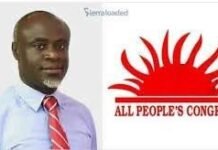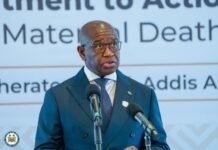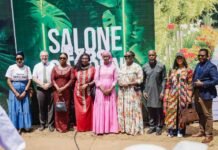By Amin Kef (Ranger)
The Ministry of Communications, Technology and Innovation in Sierra Leone is embarking on a transformative journey by raising up to $150 million to implement a comprehensive digital innovation hub strategy. This ambitious plan, spearheaded by the Minister of Communications, Technology and Innovation, Salima Bah, includes the establishment of a new Tech City aimed at fostering job creation, entrepreneurship and attracting inbound investment.
The initiative is designed to position Sierra Leone as a key innovation hub in West Africa, drawing talent from across the region and within the country. “We want to create an environment that allows entrepreneurs to thrive,” said Salima Bah.
The Tech City will be situated within a 130-acre Special Economic Zone in Tikonko, Bo District, approximately 250 kilometers east of the capital, Freetown. The zone is being tailored to support startups and innovators, leveraging the country’s small size—an advantage in rapidly adapting to changing environments.
With a GDP of just under $4 billion in 2023 and a population of 8.7 million, Sierra Leone aims to create a nimble and responsive innovation ecosystem.
Private sector support is pivotal to the digital policy push. Local telecom companies, Africell and Orange Sierra Leone, are key partners with Africell committing to building a Data Center in Tech City, accessible to third parties. Head of Africell Sierra Leone, Shadi Gerjawi, highlighted this as a significant step in supporting the initiative.
The strategy was officially unveiled at the Sierra Leone Tech Summit in Freetown, attended by 4,000 delegates. President Julius Maada Bio endorsed the plan, announcing a $50 million digital transformation project to modernize the country’s digital infrastructure and promote digital literacy.
A crucial aspect of the Tech City strategy is securing commitments from companies to establish facilities within the zone, including data centers and tech schools. Initial efforts will focus on job creation by opening business process outsourcing centers with 10,000 to 15,000 computer seats and device assembly lines.
The rise of tech hubs across Africa over the last decade and a half has largely bypassed Sierra Leone. However, consultant, Oswald Osaretin Guobadia, believes the country can achieve a digital-led transformation with the right policies. Guobadia, who previously served as a Senior Special Assistant on digital transformation to the Nigerian President, emphasizes the importance of attracting and retaining entrepreneurs and established businesses.
Challenges remain, including the need to attract startups and founders from established tech hubs like Lagos and Accra to create a critical mass that will attract investors. Additionally, there is a need to develop local talent to support these startups.
However, Minister Salima Bah and her team are addressing those challenges by improving the ease of doing business and enhancing key infrastructure, such as work visas, lower taxes, reliable internet, and steady electricity. “While the Government is working to solve the electricity problem nationwide, we can ensure reliable electricity within this designated zone,” she stated.
Sierra Leone’s Tech City strategy is a bold bet on the future, aiming to establish the country as a significant player in the digital economy.




